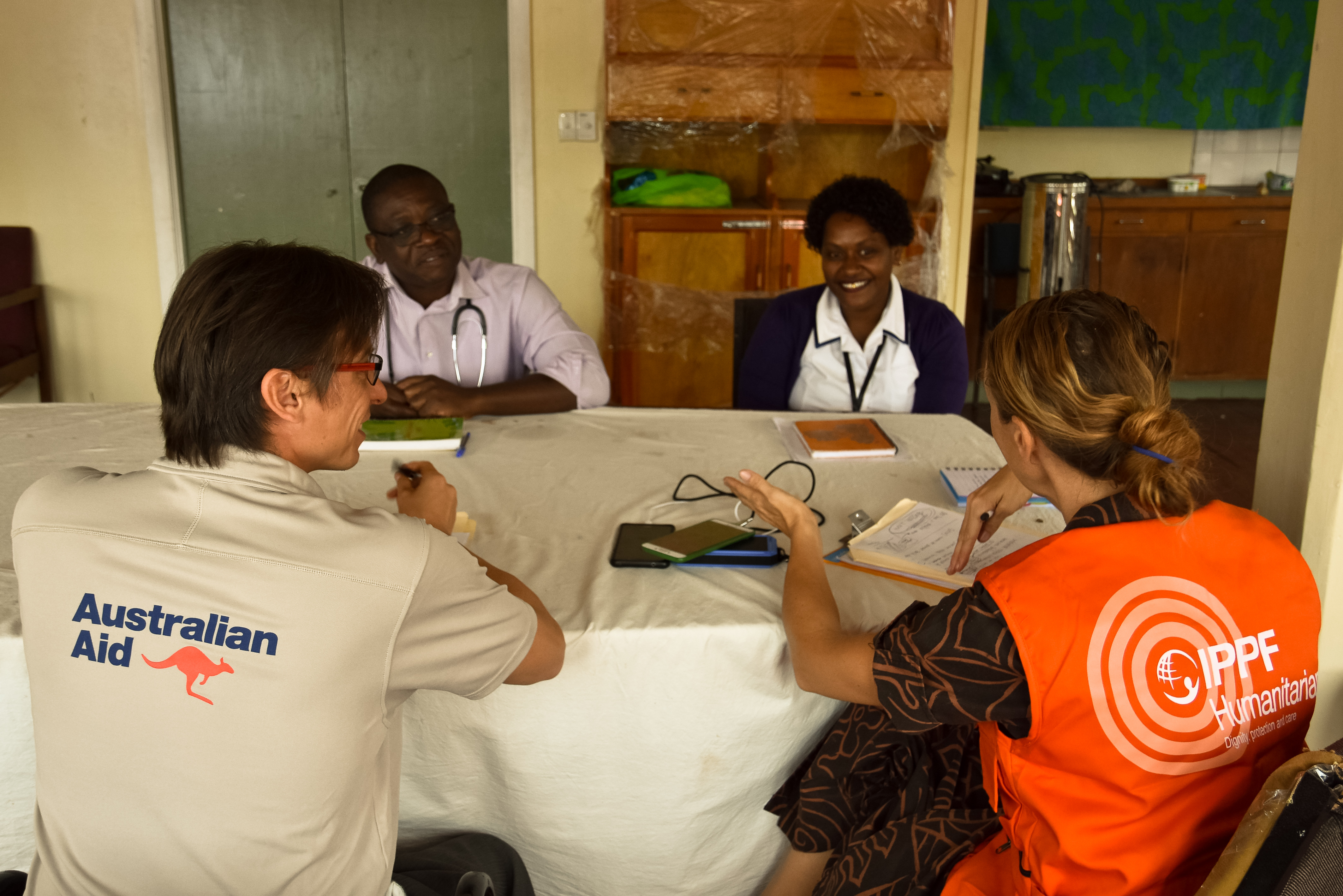
| 26 April 2022
SPRINT: Sexual and reproductive health in crisis and post-crisis situations
The SPRINT Initiative provides one of the most important aspects of humanitarian assistance that is often forgotten when disaster and conflicts strike: access to essential life-saving sexual and reproductive health services. We build capacity of humanitarian workers to deliver essential life-saving sexual and reproductive health services in crisis and post-crisis situations through the delivery of the Minimum Initial Service Package (MISP) for reproductive health in emergencies. Through funding from the Australian Government's Department of Foreign Affairs and Trade (DFAT), our SPRINT Initiative has brought sexual and reproductive health to the humanitarian agenda, increased capacity and responded to a number of humanitarian emergencies. Australia has funded the SPRINT initiative since 2007. Since then, the SPRINT initiative has responded to 105 humanitarian crises and worked with partners in 99 countries. SPRINT has reached over 1,138,175 people, delivering 2,133,141 crucial SRH services, and continues to respond to ongoing emergencies. In each priority country, we work with an IPPF Member Association to coordinate and implement life-saving sexual and reproductive activities. Through these partnerships, SPRINT helps strengthen the enabling environment, improve national capacity and provide lifesaving services during times of crisis. You can read more about IPPF Humanitarian’s Programme here. Australia's location in the Indo-Pacific provides DFAT with a unique perspective on humanitarian action. Australia is committed to helping partner governments manage crisis response themselves. This is done through building the capacity of the national government and civil society to be able to respond to disaster. DFAT also works with experienced international partners to prepare for and respond to disasters, including other donors, United Nations agencies, the International Red Cross and Red Crescent Movement and non-government organisations.

| 09 April 2016
Sustainable Networks
Support for International Family Planning Organizations 2; Sustainable Networks (SIFPO 2) is a five-year programme funded by the United States Agency for International Development (USAID). It is aimed at improving IPPF's capacity to significantly increase family planning programming worldwide, working in partnership with The Population Council and our Member Associations. USAID, through SIFPO 2 is supporting IPPF to deliver high quality, affordable family planning services to young, poor and underserved women and men in USAID priority countries. By strengthening IPPF's organizational capacity and by supporting Member Associations directly, SIFPO 2 is helping build a stronger, more effective Federation. By the end of the project in 2019, we aim to: Strengthen organizational systems and improved capacity to deliver quality family planning and other health programmes Test, implement and disseminate innovations, tools and approaches for delivering family planning services to young, poor and underserved communities Implement or leverage financing mechanism that improve the sustainability of family planning and other health services Strengthen the capacity of IPPF Member Associations and other partner governments to provide high quality family planning and other health services Pursue innovative partnerships to strengthen health service delivery networks SIFPO 2 will transform IPPF’s systems and capacity to deliver quality assured, affordable family planning. Through a series of targeted investments, IPPF will move to a new trajectory of performance with new systems that enable data driven decision making and partnerships that increase sustainability. This investment will revolutionize our network and improve health and rights for millions of young, poor and/or underserved women and men in USAID family planning priority countries. Result areas Strengthening Organizational Capacity. The Sustainable Networks award provides IPPF with the opportunity to invest in strengthening its global systems to deliver high quality family planning. The project will allow for targeted contributions to our health management information system, supply chain management, and quality of care. We will support leadership and implementation of best practice across all MAs through organizational learning and investments in impactful, proven models of service delivery. Increasing Sustainability of Country-Level Family Planning. Sustainable Networks offers USAID the opportunity to leverage IPPF’s broad reach and extensive service delivery network by investing directly in locally owned and managed organizations. Through Sustainable Networks, our Member Associations will build the capacity of their local partners to provide high quality family planning and other health services and will pursue innovative partnerships to strengthen their health service delivery networks. Partners In order to deliver SIFPO-2, IPPF has partnered with selected family planning and research organizations including: The Population Council conducts research to address critical health and development issues. The Population Council will lead the research components of SIFPO-2 and will ensure that systematic evidence is generated on IPPF's programmes for organizational learning and wider dissemination. University of California San Diego (UCSD) Center on Gender Equity and Health (GEH) conducts innovative global public health research, including developing and evaluating evidence-based policies and practices related to gender-based violence and other gender inequities and their impact on health. IPPF and GEH are adapting and evaluating a promising clinic-based intervention (ARCHES, Addressing Reproductive Coercion in Health Settings) to reduce intimate partner violence, reproductive coercion, and related unintended pregnancy among women and girls attending family planning clinics. SIFPO-2 is also working in partnership with IPPF member associations in Nepal, Kenya, Malawi, Liberia, the Ivory Coast, Togo, Domonican Republic, Honduras, Guatemala, and El Salvador. The Support for International Family Planning Organizations 2 - Sustainable Networks project is a five-year cooperative agreement funded by the US Agency for International Development under Agreement No. AID-0AA-A-14-00038, beginning May 13, 2014. The information provided in this document is not official US government information and does not necessarily represent the views or positions of the US Agency for International Development. Project activities Here is a selection of SIFPO2 project activities across Asia, Africa and Latin America: Family Planning Association of Nepal (FPAN) Supporting voluntary family planning and Zika prevention in countries affected by Zika Family Health Options Kenya (FHOK)






